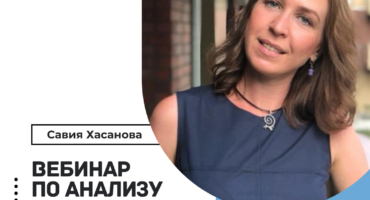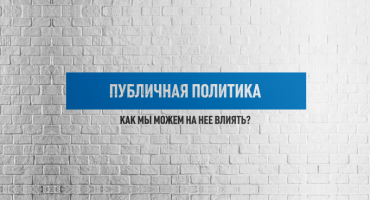In this video, we are going to talk about interview techniques. You may have heard some people say that an interview is just the same as a simple chat with a friend. That’s not quite true.
An interview has a much more strategic goal than a simple conversation. You need to find something out or get a particular answer from someone. The best way to achieve that goal is to be aware of good interview techniques. So the first thing you need to decide is what type of interview are you conducting. Are you trying to get short soundbites?
For example, you are doing a TV news report and you need a very short quote that will fit into that new package. In this case you are not looking for a long interview and you are not worried about the flow of the interview. The only thing your viewer will ever see is the short clip of perhaps ten to fifteen seconds when it is slotted into your news report. In this case it often helps to be honest with your interviewee.
If they know they only have a short period of time to make their point, they will answer in a more concise manner. You often have to answer the question more than once and rephrase it until you get the answer you need. So in this case stay focused on the goal. You just need one or two good quotes about the topic that you are covering. The next type of interview is a full-length one. Unlike the previous scenario, here we will see or hear the entire interview.
In this case, the interviewee will have more time to speak and you will also need to think more about how the interview flows. Your questions will be heard so need to be carefully thought through and there should be a proper beginning middle and end.
Finally, there is the format driven interview. For example, in TV and Radio, you have interviews that are time-limited, such as 1-minute quick-fire questions, or you may have the same questions that you ask each interviewee., or even a format where the audience sends in questions for a celebrity or politician. In this case, the format dictates the flow and the questions. One of the most difficult types of interviews to get right is a challenging interview. This is when you are asking difficult questions of your interviewee. It’s likely to be tense and the person you’re talking to will almost certainly be very defensive. So how can you get it right? Firstly, have a very clear goal for the interview.
Do you want them to admit some wrongdoing? What would be considered a success? Next, have a logical flow. Make sure the topics you cover lead naturally from one to the other. If there is a danger your interviewee may walk out or lose their temper, it is best to leave those questions to the end of the interview. If you ask the most challenging questions at the beginning and they end the interview, you’ll be left with nothing. Do you have evidence to present? If you were a lawyer making a case in court, you’d be expected to present evidence. In the same way, for some topics, you may need to confront your interviewee with damning evidence. Think about how you want to use this.
For example, if you have evidence a politician knew about a problem in January, you may choose to ask them first when they knew about it. If they say they only heard about it in March, you can then provide your evidence to show they are not being truthful. How and when you present your evidence can affect how successful your interview is.
Finally, on this point, I want to stress one point. With challenging interviews, we can sometimes lose sight of what we are trying to do which is serve our audience. Sometimes, especially in radio and television, journalists can see an aggressive interview as a good interview.
The problem is, sometimes it just descends into an argument with people shouting over each other. Always ask yourself if this interview is giving serving your audience, making them better informed or is it just a confrontation. The best way to get a good response from the person your interviewing is to build a connection with you. There are a few ways you can do this. Firstly, try and build rapport in advance. When you meet a stranger you tend to be more guarded and maybe even anxious. It can be the same for someone who is being interviewed about a news story. If you have time to speak with your interviewee ahead of time it can help put them at ease and allow you to build a connection. This can be especially useful when dealing with someone who has gone through a traumatic experience or is nervous about being interviewed. If you meet them and straight away start conducting the interview, it is much harder to build that rapport. Next, set the tone with your questioning. People tend to mirror what you do.
The way you talk to them will signal to them what tone you expect from their answers. For instance, if I wanted a light-hearted, fun interview I would ask the questions in that way. The interviewee would likely follow my lead and answer in a light-hearted way. In the same way, if I am doing an emotive interview and ask in a calm, reflective way, then they will probably answer in that same manner. As the interviewer, you set the tone.
The next tip sounds ridiculous, but it needs to be said. Make sure you listen to the answers. When you have a prepared set of questions it can be tempting to simply read one after the other without paying proper attention to the answers. I made this mistake when I started in radio. I remember listening back to an interview and realising they had said something which needed a follow-up question, but because I wasn’t listening properly I missed it. Make sure you listen carefully and follow-up on anything they say that you want to know more about.
The last point here is to draw out their emotions and opinions. As a journalist, you can write or talk about facts and figures. While these are important to talk about, make sure you ask questions that make the interviewee express their opinions and emotions.
Firstly, this will make your interview more engaging on a human level, but it also adds what you cannot. As a reporter, it is not for you to take sides and speak passionately for or against an issue. However, you can get that into your stories with good interviews. So make sure your questions find out not just what happened, but how people feel about it. The success of an interview begins at the planning stage. Firstly, will the location be appropriate?
If you are doing a difficult interview with a parent who has lost their child, it would be best done at a quiet location with no distractions. If you were interviewing sports fans ahead of a big match, then it might seem more natural to be in a crowded, noisy environment. Make sure the location is right for the story you want to tell.
This is even more important for TV and video. You want an interesting location, but nothing too distracting. Next, have you researched the topic? The more knowledge you have in advance, the more likely you will pick out the most interesting parts of the story. Imagine you are going to be interview a scientist about vaccines. It would be best to find out as much as you can about vaccines, the terminology, and any issues relevant to your story. Also, find out about your interviewee. Try and watch or read old interviews with the same person. Get a sense of how they answer questions and make a note of any points you want to bring into your interview. A few other tips. Throw them off guard. This is more for celebrities or famous people who have been interviewed many times before.
These kinds of people often end up asking the same questions the same way, almost on autopilot. Anything you can do to surprise them will get a much more natural response. Some ways to do this are, ask questions from the audience, play them a video clip, show them an old photo. Anything you can do that might get a natural response can be very effective. Ask open or double questions. Don’t ask questions they can answer yes or no. If you start asking a yes, no question make it a double question. So if I asked do you like where you live, you could answer yes or no. If I asked do you like where you live and why? Then you have to answer with a full sentence.
You may sometimes get requests to send questions in advance. It is best if you don’t. You may tell them which topics you want to talk about, but if you give them the questions, they will probably memorise answers and you will get a very unnatural interview. It is also best not to ask them these questions when you meet them before the actual interview.
Sometimes people’s first natural response is the best. And one final tip. You may have one main question which you ask at the beginning. You may get a decent answer, but often interviewees warm up during the interview and by the end, they are far more relaxed and engaging. It is sometimes worth asking your first question again at the end, even if you rephrase it so it doesn’t seem so obvious.
That way you get your most important question answered when they are warmed up, relaxed, and at their best. So these are some thoughts on interviews. Have a goal, think about the type of interview you are doing, do your research, think about your questions, build rapport, and don’t forget to listen.
If you have found a spelling error, please, notify us by selecting that text and pressing Ctrl+Enter.






